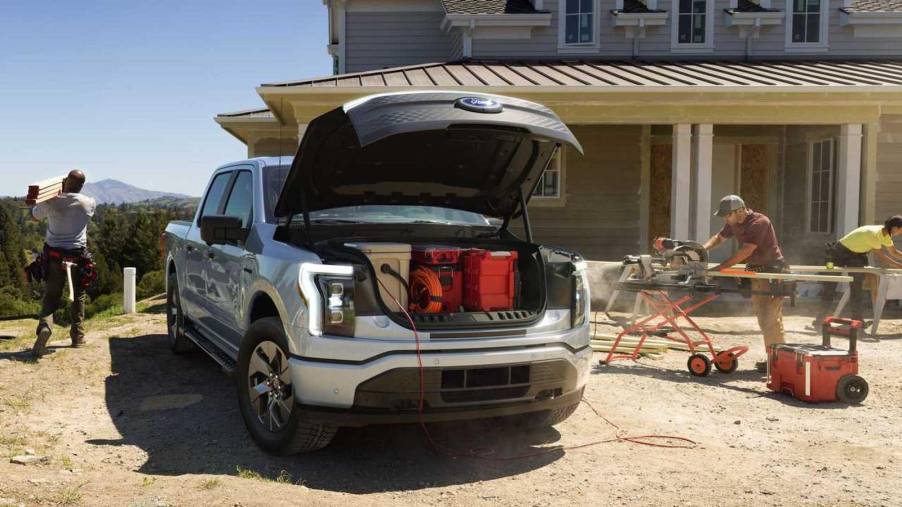
1/3 of Drivers Want a Feature in Their Next Car That Most EVs Already Have
Over 1/3 of drivers surveyed say they want a household 110-volt outlet in their next car (34%, to be precise). That’s more folks than the car owners asking for rear cross traffic alerts and automatic emergency braking, or sun shades for rear passengers (which, come to think of it, would be a fantastic feature). What’s intriguing is that this is a relatively complex feature to engineer into an internal combustion car. But it is quickly becoming the norm for new EVs.
AutoPacific just published the 2024 Future Attribute Demand Study, after surveying 14k drivers to find out what automotive features they want in their next car. It found that many vehicle owners want a regular “home outlet” in their next vehicle. These can be handy while camping or on a job site.
Here’s the scoop: most internal combustion cars have 12-volt electrical systems. Converting this power to 110-volts to operate an appliance such as a laptop, requires an electricity “inverter.” You can buy an aftermarket inverter to plug into your car’s 12-volt socket. You can also buy some cars with a built-in inverter and a regular 110-volt wall outlet in the vehicle. But inverters are expensive and they can get hot, so automakers must engineer them to stay cool.
There are some legacy models updated with EV powertrains that still have an old-school inverter as part of their 12-volt system (yes, EVs have a 12-volt system in addition to the high-voltage traction battery that spins the wheels). But an increasing number of EVs offer “bidirectional charging.” This means you can draw power from the large traction battery. A vehicle like this could power serious appliances–or an entire house. In fact, owners have already used some of these vehicles to power their house when natural disasters knock out the electrical grid.
There are multiple levels of bidirectional charging. The simplest is “vehicle to load” with regular power outlets for appliances, while “vehicle to home” remains rare. But to make a long story short, here are the 2024 EV models with some version of this technology:
- Nissan Leaf
- Ford F-150 Lightning
- Kia EVs
- Hyundai EVs
- Genesis EVs
- Jeep Wrangler 4xe
- GMC Evs
- Chevrolet EVs
- Cadillac EVs
- Lucid Air
- Mitsubishi Outlander PHEV
- Volkswagen ID.4
- Tesla Cybertruck
- Fisker Ocean
Next, see CNET’s deep dive into how bidirectional charging could change the EV market forever:



